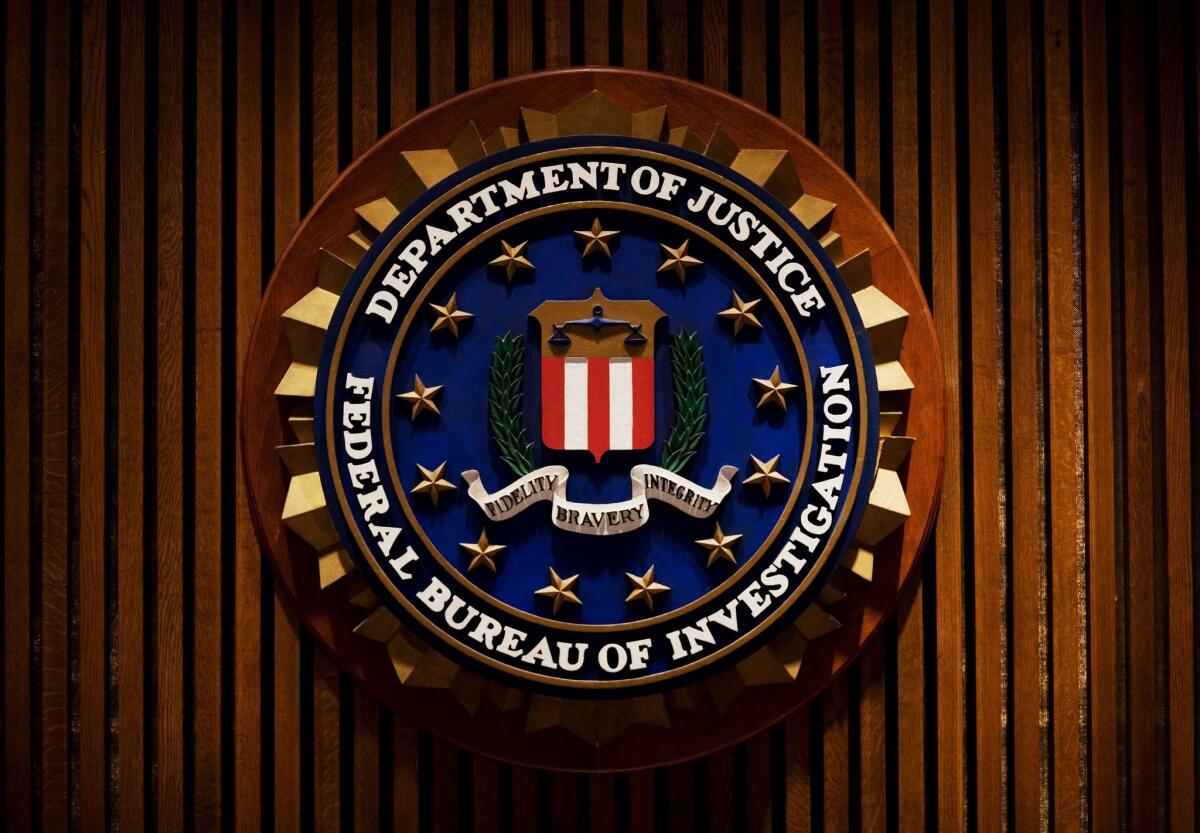$3-million reward offered for arrest of Russian hacker

- Share via
Reporting from Washington — A brazen Russian hacker who allegedly siphoned off more than $100 million from American bank accounts now has a multimillion-dollar price on his head.
The U.S. government announced Tuesday that it would pay up to $3 million for information leading to the arrest of Evgeniy Bogachev, whom U.S. officials call one of the world’s most advanced and prolific computer hackers. He was indicted in Pittsburgh last year on charges including bank fraud and conspiracy.
The reward is the largest ever offered in a cyber crime investigation, officials said.
Bogachev, whom FBI agents describe as “brilliant,” is believed to be living openly in the Russian beach town of Anapa, on the Black Sea east of Crimea. He is known to sail his yacht between resorts, the bureau said.
The FBI distributed “Wanted” posters around the world showing Bogachev leaning back in a striped polo shirt, smiling, with his head shaved. He “is known to enjoy boating and may travel to locations along the Black Sea in his boat,” according to the poster issued Tuesday. He also owns property in the lakefront town of Krasnodar, according to the FBI.
Russian authorities, who are not bound by an extradition treaty with the U.S., have shown no signs of helping to arrest Bogachev.
Joseph M. Demarest, Jr., assistant director of the FBI’s Cyber Division, said the FBI hopes the reward will create an incentive for other hackers to help find him and turn him in to authorities.
“He’s in Russia; he’s not leaving,” Demarest told reporters.
Federal officials say that more than 1 million computers were infected by malicious software designed and launched by Bogachev in 2007.
The scheme used a so-called botnet named GameOver Zeus that allowed Bogachev to control thousand of computers around the world. The software captured bank account numbers, passwords and other personal information that was used to transfer money out of bank accounts.
The hacking operation was “one of the most sophisticated botnets ever created,” Demarest said. Bogachev is “brilliant at what he does,” he said.
So far, federal officials estimate that GameOver Zeus could still infect as many as 30% of the computers originally infiltrated around the globe.
Arresting hackers living overseas is a challenge for U.S. authorities, particularly in countries like Russia that lack an extradition treaty.
Issuing a reward has worked once before in helping the FBI arrest a wanted hacker, Demarest said. In October, the FBI offered $5,000 for information leading to the arrest of John Gordon Baden, an American who was living in Tijuana.
Baden was accused of using stolen identities from victims in California and other states to buy expensive electronic equipment that he then sold. Tijuana Municipal Police arrested Baden within a month and extradited him to San Diego to face charges.
“It sends a message,” Robert Anderson, executive assistant director of the FBI’s Criminal, Cyber, Response and Services Branch, told reporters about the decision to issue a reward for Bogachev’s arrest.
“The blogs of hactivists around the world will light up -- someone is putting an ‘X’ on someone, and if you bring him to justice you get $3 million,” Anderson said.
The U.S. is planning to launch similar public campaigns to catch other hackers in the coming months, Anderson said. Investigators want to “reach out and touch some of these guys,” he said.
Follow me on Twitter @ByBrianBennett.
More to Read
Sign up for Essential California
The most important California stories and recommendations in your inbox every morning.
You may occasionally receive promotional content from the Los Angeles Times.











